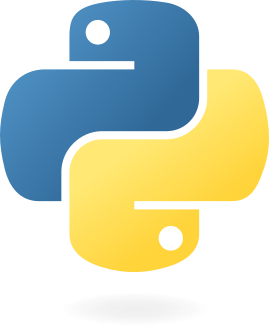

Python 3.11 달라진 점 - 업데이트Language/Python2024. 1. 15. 23:01
Table of Contents
속도
문서에 따르면 3.10에 비해 10% ~ 60% 빨라졌다. 즉 1.25 배 빨라졌다
예외 처리 새 구문 (except*)
예외문에 대한 그룹을 설정할 수 있고, 한번에 여러 예외를 받을 수 있다.또한 출력문을 예쁘게 그려준다
def f():
raise ExceptionGroup(
"group1",
[
OSError(1),
SystemError(2),
ExceptionGroup(
"group2",
[
OSError(3),
RecursionError(4)
]
)
]
)
try:
f()
except* OSError as e:
print("There were OSErrors")
except* SystemError as e:
print("There were SystemErrors")
There were OSErrors
There were SystemErrors
+ Exception Group Traceback (most recent call last):
| File "<stdin>", line 2, in <module>
| File "<stdin>", line 2, in f
| ExceptionGroup: group1
+-+---------------- 1 ----------------
| ExceptionGroup: group2
+-+---------------- 1 ----------------
| RecursionError: 4
+------------------------------------# tomlib 추가
데이터 직렬화 포맷인 TOML을 파싱할 수 있는 내장 라이브러리가 추가되었다.
import tomllib
with open("pyproject.toml", "rb") as f:
data = tomllib.load(f)유사 데이터 JSON, YAML과 비교하면
| 특징 | JSON | YAML | TOML |
| 포맷 종류 | 데이터 교환 | 인간이 읽기 쉬운 데이터 | 설정 파일용 |
| 문법 | 엄격하고 간결한 | 사용자 친화적이고 유연한 | 키-값 쌍 |
| 주석 처리 | 지원하지 않음 | 지원 | 지원 |
| 데이터 타입 | 기본적인 타입 (문자열, 숫자, 객체, 배열, 불리언, 널) | 풍부한 타입 (JSON 타입 지원 및 이진 데이터 등) | 풍부한 타입 (기본 타입 및 날짜 지원) |
| 가독성 | 중괄호와 따옴표 때문에 가독성이 떨어짐 | 최소한의 구두점으로 매우 가독성이 좋음 | 명확한 구조로 가독성이 좋음 |
| 작성 용이성 | 엄격한 문법으로 인해 작성이 덜 편리함 | 간결하고 쉬움 | 직관적이고 쉬움 |
| 파일 확장자 | .json | .yaml 또는 .yml | .toml |
| 사용처 | 웹 API, 현대 웹 애플리케이션의 설정 | 설정 파일, 데이터 직렬화 | 설정 파일, Rust 환경에서 더 일반적 |
에러 문구 개선
에러가 발생한 부분을 밑줄로 알려준다.
사용자 입장에서 가장 크게 다가왔다.
x 변수에 대한 NoneType에서 어떤 변수의 x를 조회하다가 에러가 발생했는지, 밑줄로 알려준다.
Traceback (most recent call last):
File "distance.py", line 11, in <module>
print(manhattan_distance(p1, p2))
^^^^^^^^^^^^^^^^^^^^^^^^^^
File "distance.py", line 6, in manhattan_distance
return abs(point_1.x - point_2.x) + abs(point_1.y - point_2.y)
^^^^^^^^^
AttributeError: 'NoneType' object has no attribute 'x'아쉬운 건 아래 코드에서
제로 디바이드에 대해 연산자 기준으로 알려준다. (변수 기준이었다면)
raceback (most recent call last):
File "calculation.py", line 54, in <module>
result = (x / y / z) * (a / b / c)
~~~~~~^~~
ZeroDivisionError: division by zero
Variadic 제너리
TypeDict를 상속받으면Java - Spring 에서의 모델이나 objectMapper.readValue 처럼, 클래스-객체의 프로퍼티에 값을 넣어준다.
class Movie(TypedDict):
title: str
year: NotRequired[int]
m1: Movie = {"title": "Black Panther", "year": 2018} # OK
m2: Movie = {"title": "Star Wars"} # OK (year is not required)
m3: Movie = {"year": 2022} # ERROR (missing required field title)NotRequired 설정도 가능하다
class Movie(TypedDict, total=False):
title: Required[str]
year: int
Self Return 사용
기존에는 self를 반환하면 타입 힌트를 사용하여 해당 타입을 반환할 수 있었다.
class Shape:
def set_scale(self, scale: float) -> Shape:
self.scale = scale
return self
Shape().set_scale(0.5) # => Shape하지만 이런 경우, Circle().set_scale(0.5) 에서 Shape 형태로 반환되어, set_radius()를 호출 할 수 없게 된다.
class Circle(Shape):
def set_radius(self, r: float) -> Circle:
self.radius = r
return self
Circle().set_scale(0.5) # *Shape*, not Circle
Circle().set_scale(0.5).set_radius(2.7)
# => Error: Shape has no attribute set_radius기존 버전에서는 아래와 같이 별도의 TShap를 사용해야 했지만
from typing import TypeVar
TShape = TypeVar("TShape", bound="Shape")
class Shape:
def set_scale(self: TShape, scale: float) -> TShape:
self.scale = scale
return self
class Circle(Shape):
def set_radius(self, radius: float) -> Circle:
self.radius = radius
return self
Circle().set_scale(0.5).set_radius(2.7) # => CircleSelf 라는 직관적인 형태를 제공하여 개선하였다.
from typing import Self
class Shape:
def set_scale(self, scale: float) -> Self:
self.scale = scale
return self
class Circle(Shape):
def set_radius(self, radius: float) -> Self:
self.radius = radius
return self
사용한 코드는 모두 PEP 공식 문서를 참조했습니다.
'Language > Python' 카테고리의 다른 글
| [Python] GIL이란? 파이썬에서의 멀티쓰레드 (0) | 2024.05.06 |
|---|---|
| [Python] Pandas, Numpy 성능 향상 (feat.Pandas vs Numpy) (0) | 2024.05.06 |
| 자료구조 - List, Dict, Set, Tuple (0) | 2022.10.27 |
| sort, sorted ( Tim sort, 팀 소트) (0) | 2022.10.23 |
| 파이썬 Python GUI - 그래프 (pyqtgraph, matplotlib) (realtime, 실시간) (0) | 2021.02.20 |
![[Python] GIL이란? 파이썬에서의 멀티쓰레드](https://img1.daumcdn.net/thumb/R750x0/?scode=mtistory2&fname=https%3A%2F%2Fblog.kakaocdn.net%2Fdn%2Fcs9lYe%2FbtsHbiTu7dV%2F1B6SP9ksSdoxkqatEEKFk0%2Fimg.webp)
![[Python] Pandas, Numpy 성능 향상 (feat.Pandas vs Numpy)](https://img1.daumcdn.net/thumb/R750x0/?scode=mtistory2&fname=https%3A%2F%2Fblog.kakaocdn.net%2Fdn%2Fbg24y8%2FbtsHdwv4CPM%2FGOJ53b9Sft8eRJLWL1A2z0%2Fimg.png)
